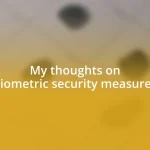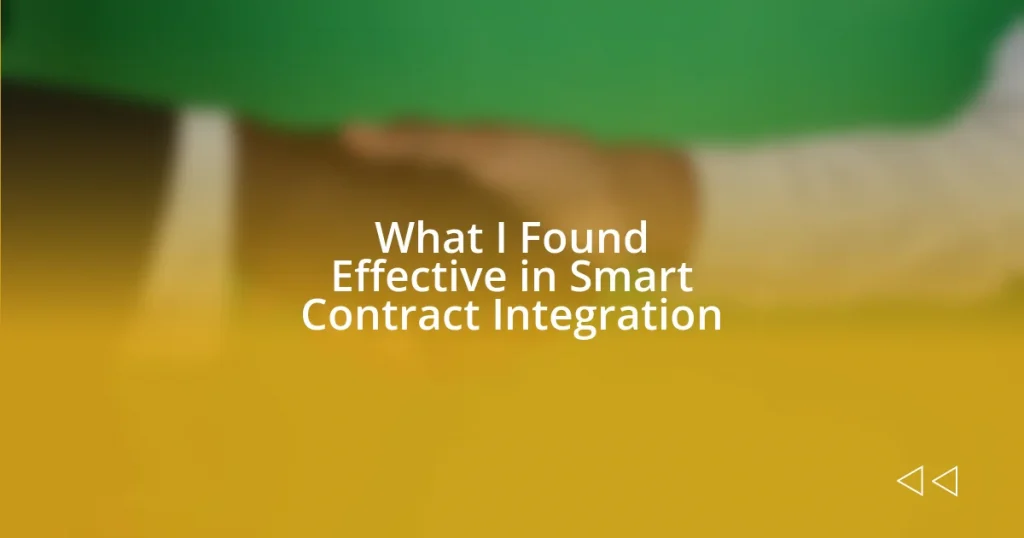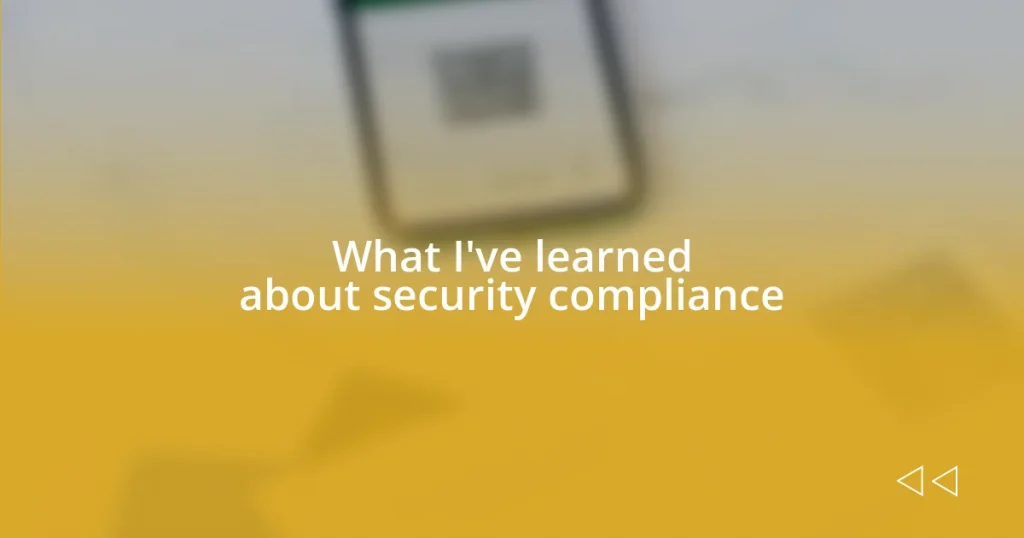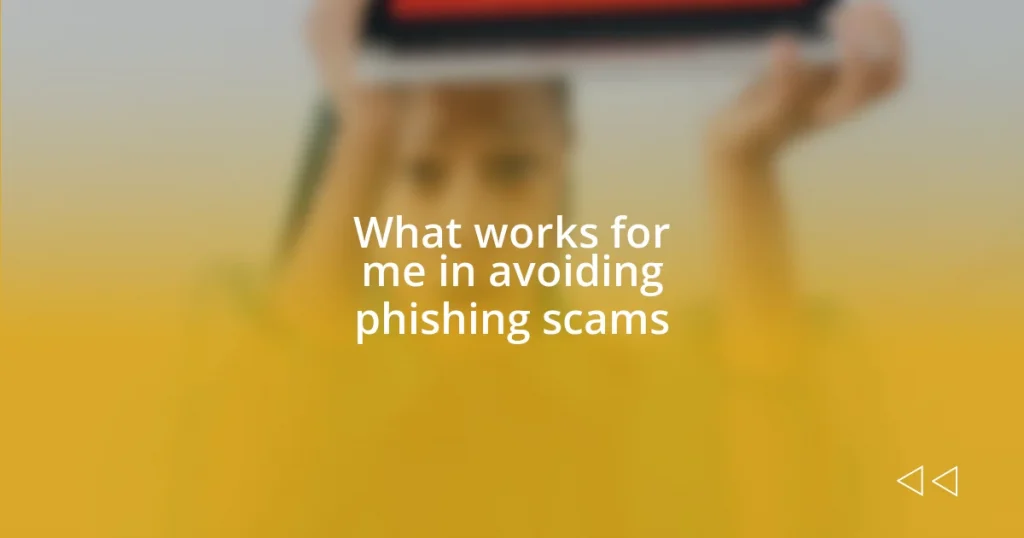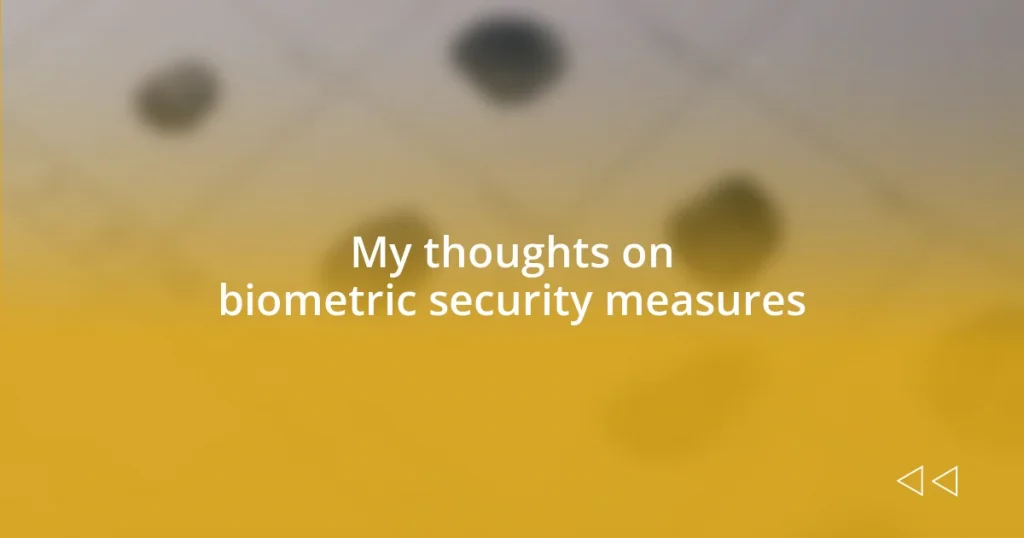Key takeaways:
- Smart contracts automate trust by eliminating intermediaries, enhancing speed, security, and transparency in transactions.
- Integration challenges include a lack of technical expertise, legacy system compatibility, and the need for regulatory compliance, which can hinder adoption.
- Real-world applications of smart contracts span industries such as supply chain management, entertainment, and real estate, demonstrating significant improvements in efficiency and accountability.
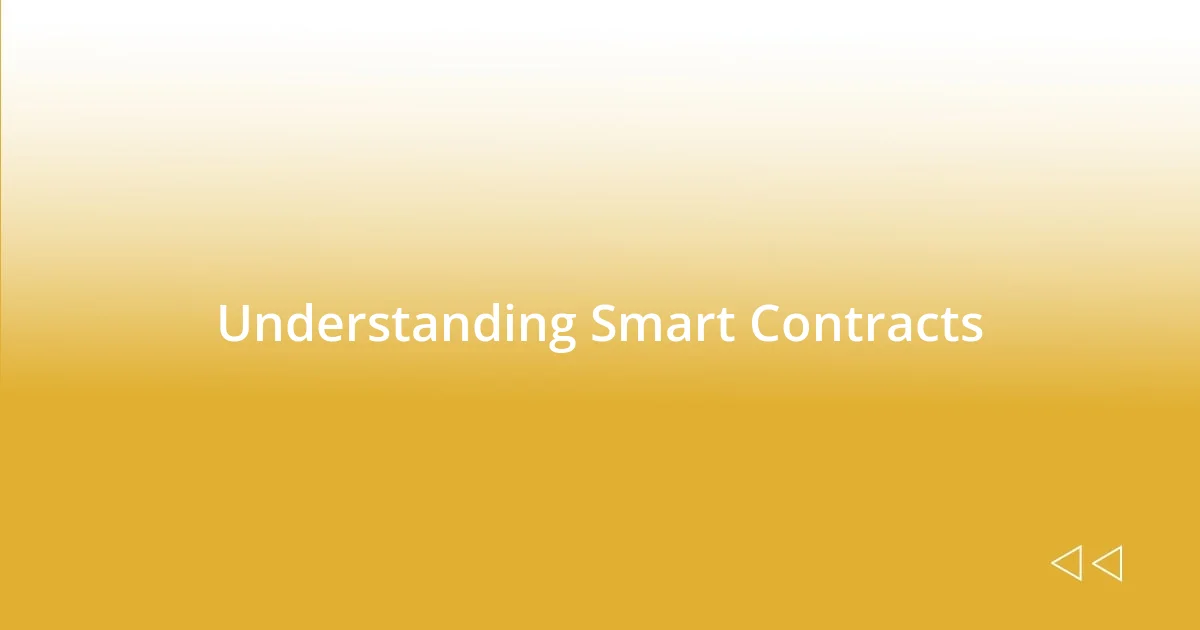
Understanding Smart Contracts
Smart contracts are essentially self-executing contracts with the terms of the agreement directly written into code. I remember the first time I stumbled upon them; it felt like discovering a whole new layer of technology. It raises a curious question: how can we trust a line of code as much as a handshake?
What truly fascinates me about smart contracts is their ability to eliminate intermediaries. When I first used one in a peer-to-peer transaction, the speed and efficiency took me by surprise—no banks or lawyers were needed, just a simple code that ensured both parties fulfilled their end of the deal. Isn’t it incredible to think that we can automate trust?
Moreover, the transparency of these contracts is another game-changer. I once participated in a decentralized finance project where every transaction was visible on the blockchain. This openness not only builds trust but also invites participation. Don’t you think having such clarity can fundamentally change how we approach agreements?
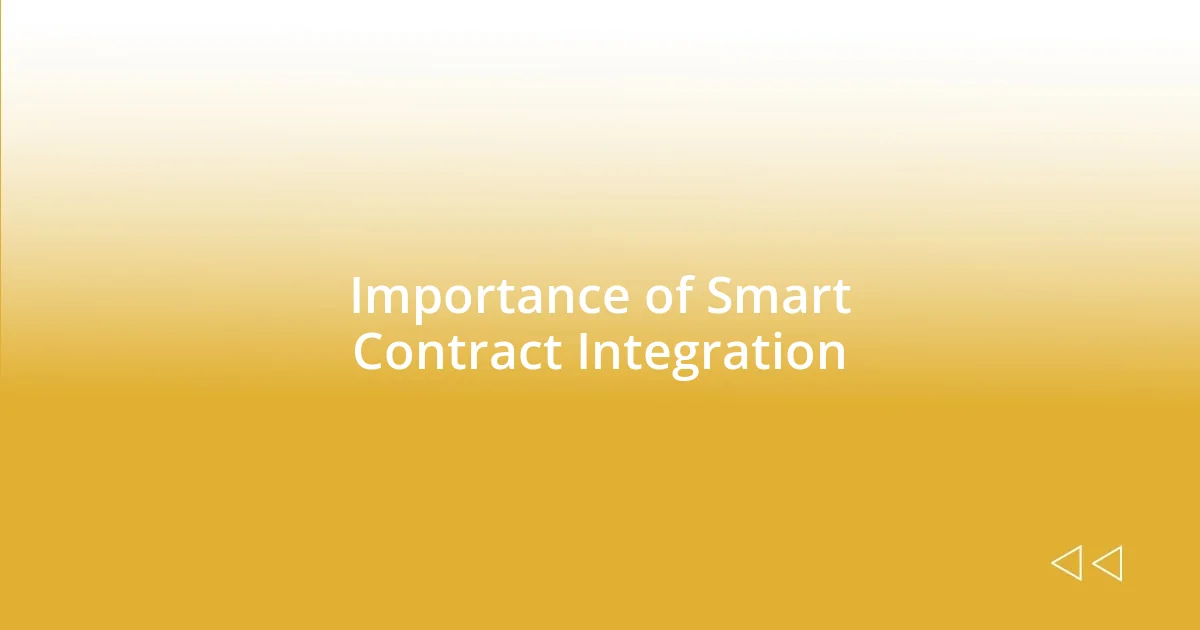
Importance of Smart Contract Integration
The importance of smart contract integration cannot be overstated. In my experience, they streamline operations and significantly reduce costs. Consider the time I spent navigating through traditional contractual processes; the endless paperwork felt daunting! Integrating smart contracts has transformed that experience into something seamless, where agreements are executed automatically without the hassle.
Furthermore, smart contracts enhance security by utilizing blockchain technology. I remember witnessing a friend’s project that relied on these contracts; the result was a highly secure transaction process, virtually tamper-proof. It gave me peace of mind knowing that the data was encrypted and secure—a stark contrast to the vulnerabilities of traditional systems.
Lastly, the role of smart contracts in enhancing accountability is profound. Once, I collaborated on a project where every action was logged on the blockchain. This traceability fostered trust among team members, as we all knew we were held accountable for our actions. It’s remarkable how the integration of such technology can inspire responsibility and ethics in business practices.
| Aspect | Traditional Contracts | Smart Contracts |
|---|---|---|
| Speed | Time-consuming with many steps | Instant execution upon conditions met |
| Cost | High due to intermediaries | Lower with automated processes |
| Security | Prone to manipulation | Secure and tamper-proof via blockchain |
| Transparency | Limited visibility | Fully transparent on the blockchain |
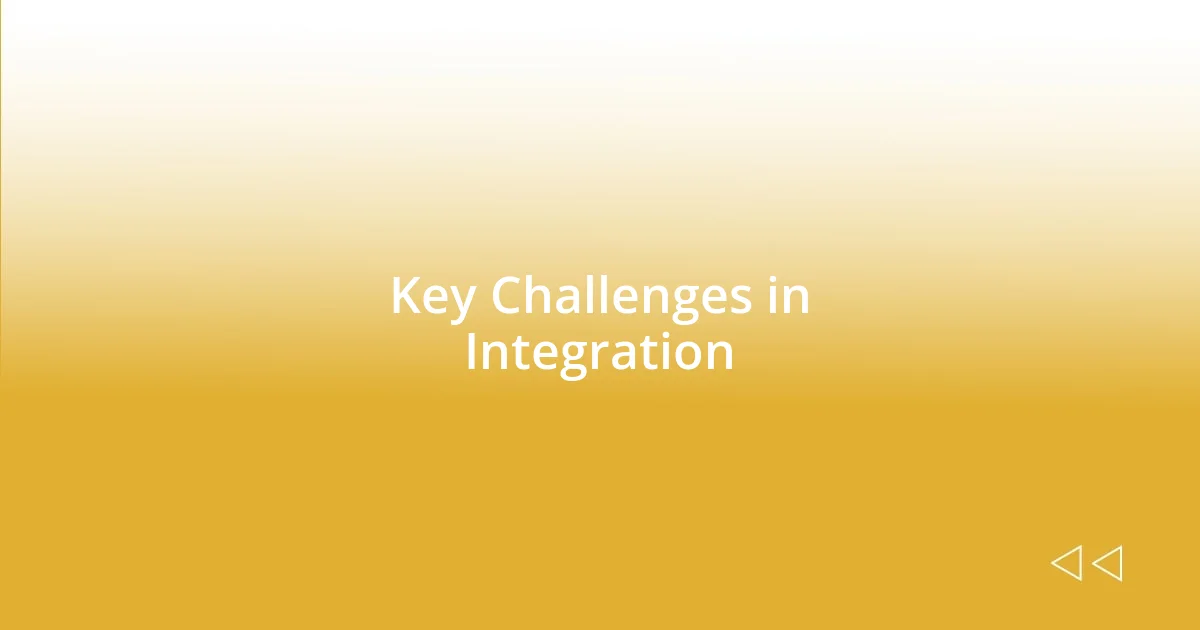
Key Challenges in Integration
Implementing smart contracts isn’t without its hurdles. I vividly recall a project where we faced significant integration issues due to differences in programming languages. It was frustrating! Navigating those discrepancies made me realize how vital it is to have a unified understanding of the technical environment before diving into integration.
Here are some challenges I’ve observed:
- Technical Expertise: A deep understanding of both blockchain and smart contract coding is essential, but many teams lack the necessary skills.
- Legacy Systems: Integrating smart contracts with existing legacy systems can prove complicated. I’ve seen companies struggle with outdated technologies resisting the transition.
- Regulatory Compliance: Navigating the legal landscape around smart contracts poses another challenge. Regulations are still catching up, and clarity can often be lacking.
- Security Concerns: While smart contracts offer enhanced security, they are not immune to bugs and vulnerabilities. I’ve seen firsthand how a minor code error can lead to significant financial losses for a project.
- User Adoption: Getting stakeholders on board can be an uphill battle. I remember the reluctance from colleagues to trust new technology—changing mindsets takes time.
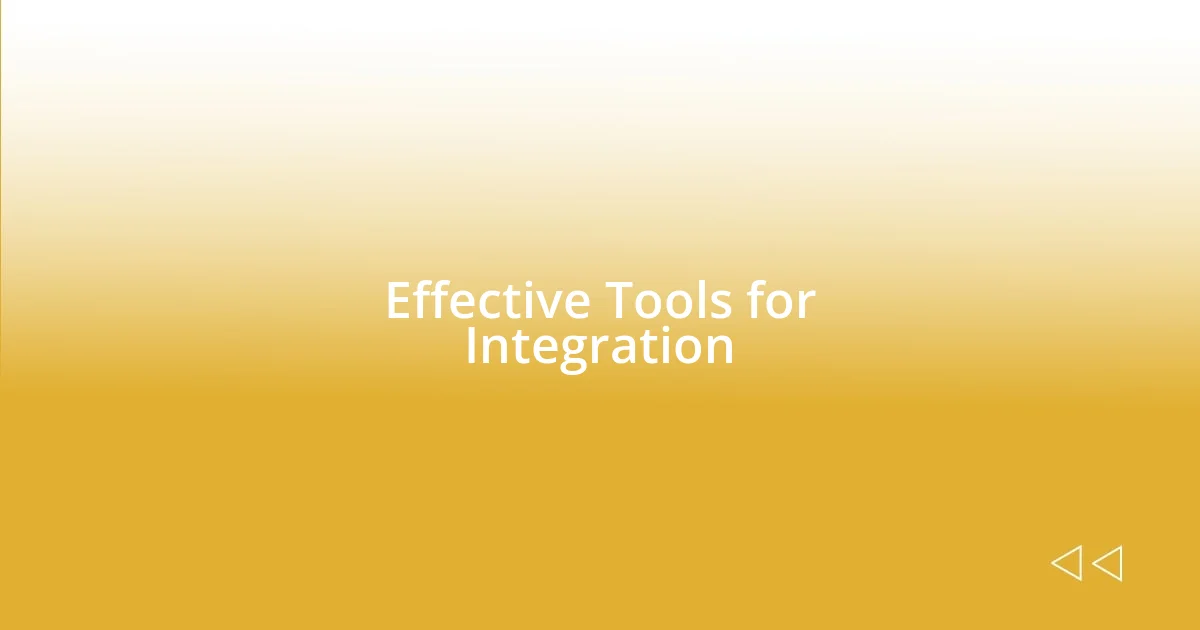
Effective Tools for Integration
When it comes to effective tools for smart contract integration, I’ve had quite a journey navigating the landscape. For instance, I found Truffle Suite particularly helpful in developing and testing smart contracts. The first time I used it, I felt like I had a safety net. It offered an integrated development environment, which made the process less intimidating—especially for someone like me, who initially struggled with smart contract coding!
Another tool that significantly impacted my work is Remix IDE. I still recall sitting at my desk, frustrated with spending hours trying to debug my contract on another platform. Remix streamlined this process, providing real-time feedback and an easy-to-use interface. It helped me to see exactly where I was going wrong, much like a mentor guiding me through the maze of code. Have you ever felt stuck in a project? That’s where the right tools can make all the difference.
Lastly, I can’t emphasize enough the value of Ganache in my integration efforts. Each time I launched a personal Ethereum blockchain, it was like having a dedicated testing ground at my fingertips. It offered the ability to experiment and iterate freely, which, in my experience, is vital for honing skills and refining smart contracts. Isn’t it liberating to develop in a space where mistakes are simply learning points rather than setbacks? That flexibility has made all the difference in my development journey.

Best Practices for Successful Integration
When embarking on a smart contract integration journey, I’ve learned the importance of involving all stakeholders early on. During one project, I noticed that if the developers, legal teams, and end-users collaborate from the start, misunderstandings are minimized. Have you ever tried to solve a puzzle without all the pieces? It’s a daunting task, and the same applies here; everyone’s input is crucial for achieving a seamless integration.
Testing is another non-negotiable aspect I advocate for. I remember a time when I rushed through testing to meet a deadline and ended up paying for it later. The launched contract had vulnerabilities that could have been so easily caught with thorough testing. I’ve found it vital to create a rigorous testing plan that not only covers functionality but also anticipates how users might interact with the contract. Isn’t it better to catch those bugs before they become costly mistakes?
Finally, continuous education cannot be overlooked. I’ve encountered moments when I felt lost in rapid technological advancements within the blockchain space. I became proactive by joining online courses and engaging with community forums. This constant thirst for knowledge helps maintain a competitive edge and empowers me to address integration challenges confidently. How do you stay ahead of the curve? Investing in your skills is a powerful strategy for any team aiming to implement smart contracts successfully.
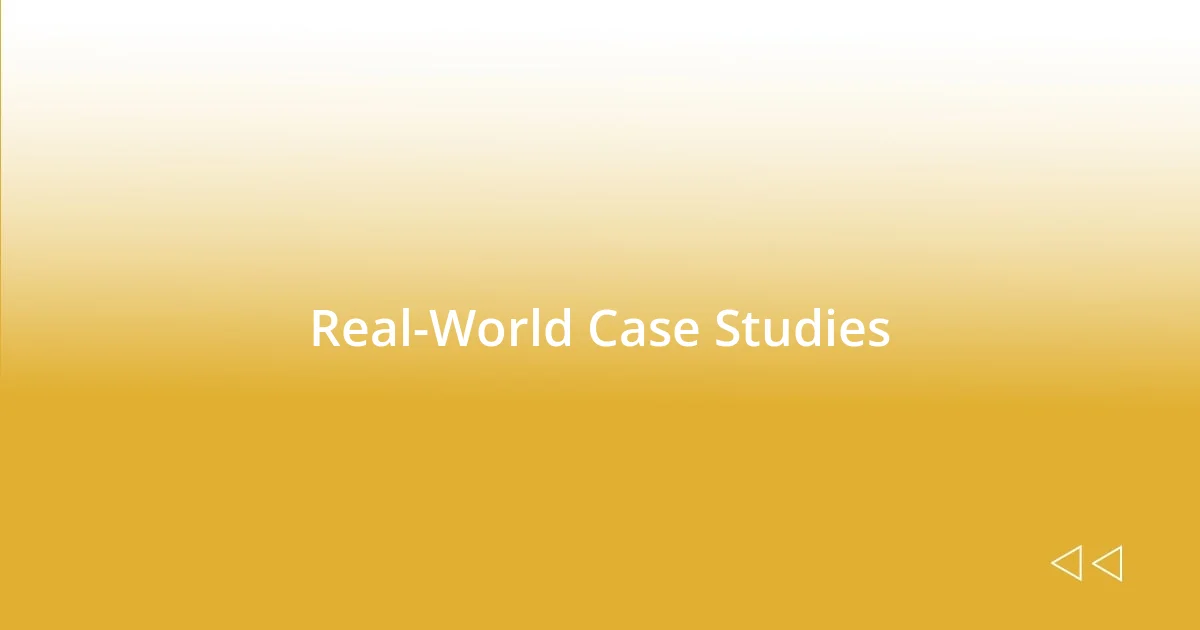
Real-World Case Studies
Exploring real-world applications of smart contracts has been an enlightening experience for me. One standout case is the implementation of smart contracts in supply chain management. I remember working with a company that wanted to ensure authenticity for its luxury goods. By creating a smart contract that tracked the product from manufacturer to store, they were able to guarantee provenance. Have you ever questioned the authenticity of a product you bought? This technology not only fostered trust among customers but also reduced fraud significantly.
Another example that truly struck me involved the entertainment industry, specifically how smart contracts are revolutionizing copyright management. I had a fascinating discussion with an artist who utilized these contracts to ensure fair distribution of royalties. It was empowering to hear how she could automatically receive payments each time her song was streamed. Can you imagine the peace of mind that comes from knowing you’re being compensated fairly and transparently? This innovation minimizes disputes and streamlines an often-chaotic payment process, creating a win-win for creators and distributors alike.
Lastly, I caught wind of a groundbreaking project involving real estate transactions. I once visited a startup where they showcased a platform using smart contracts for property transfers. They highlighted how the speed of transactions increased while costs plummeted, allowing buyers to move into their new homes without the usual stress. Doesn’t that sound appealing? By eliminating intermediaries and automating agreements, I really see the potential to transform industries and simplify complex processes.


